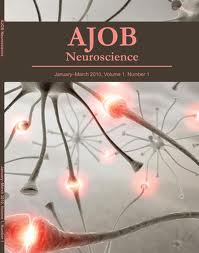Ethical Obligations to Psychopaths are Not Dependent on Development or Abuse
Main Article Content
Abstract
In their target article, What We Owe the Psychopath: A Neuroethical Analysis, Gillet and Huang make the case that psychopathy is caused by complex interactions which include genetic and environmental factors. However, their argument for the ethical treatment of psychopaths rests on psychopaths’ status as victims of abuse, and therefore that society has a moral obligation to psychopaths because of the presumably socially caused harm that underlies their illness.
This argument is flawed. Communities do have a moral obligation to psychopaths, simply because they are human beings, and in particular human beings with a defective brain (for whatever reason). We don’t need to cast aside the deficit model in order to find an ethical reason to treat psychopaths as human beings. Neuroimaging is showing that indeed psychopaths do have different brains from non-psychopaths.[i] [ii] [iii] Here, I critique the target article in light of current knowledge about the development of psychopaths. There are psychopaths who have not suffered abuse during development.[iv] Are they somehow less worthy of understanding and treatment? The authors say that the psychopath seems ‘beyond empathy.’ The psychopath may not feel empathy, and we may have some difficulties feeling empathetic towards a psychopath because of their own lack. But as non-psychopaths we are capable of empathizing with a psychopath and capable of recognizing that we owe psychopaths no less than any other human beings are due.
For a copy of the full article, please email ry2134@columbia.edu.
http://www.tandfonline.com/doi/full/10.1080/21507740.2013.782920#.UkUbCIZvNCp
[i] Kiehl, KA, et al (2001): Limbic abnormalities in affective processing by criminal psychopaths as revealed by functional magnetic resonance imaging. Biological Psychiatry 50:677–684 P
[ii] Kiehl, KA (2006): A cognitive neuroscience perspective on psychopathy: Evidence for paralimbic system dysfunction. Psychiatry Research 142:107–128
[iii] Glenn, AL, et al (2010): Increased volume of the striatum in psychopathic individuals. Biological Psychiatry 67:52–58
[iv] Hare, Robert (1993): Without Conscience. The Guildford Press, New York, NY

